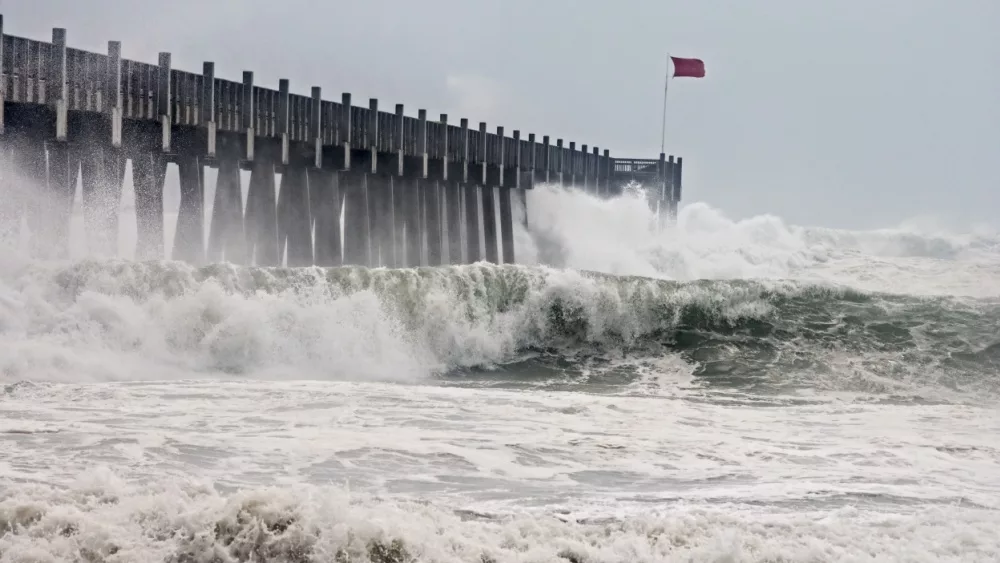
Tropical Storm Rafael gaining strength Tuesday morning after forming in the Caribbean Sea, with forecasters saying it will strengthen into a hurricane with predictions the storm is headed for the U.S. Gulf Coast later this week. Rafael is the 17th named storm of the Atlantic hurricane season, and it will be the 11th hurricane if it strengthens further. The National Hurricane Center said Tuesday: “Rafael is expected to become a hurricane as it passes near the Cayman Islands with further strengthening before it makes landfall in Cuba.”
NHC forecasters said Tuesday that Rafael was located about 80 miles south-southwest of Montego Bay, Jamaica and 230 miles southeast of Grand Cayman, carrying maximum sustained winds of 60 mph and moving northwest at 13 mph. Forecasters warn that “heavy rainfall” will hit the western Caribbean with heaviest rainfall occurring over Jamaica and portions of Cuba through mid-week.
NHC forecasters said Rafael is “getting better organized” as its center passes Jamaica, and is expected to undergo “steady to rapid intensification” to become a Category 1 hurricane as it passes near the Cayman Islands by Wednesday before weakening to a tropical storm again. The hurricane center’s latest forecast cone, which comes with some uncertainty, has Rafael passing over the western reaches of Cuba on Wednesday afternoon or evening.
The NWS station in Mobile, Ala., says there seems to be an “unusually large amount of uncertainty with the movement of this system later in the week.” Texas does not appear to be in Rafael’s track to see direct landfall, but by mid- to late week, “heavy” rainfall is expected to spread north into Florida and adjacent areas of the Southeast United State. A tropical storm watch was issued Monday afternoon for the lower and middle Florida Keys and for the Dry Tortugas, which was later upgraded Tuesday to a tropical storm warning.
Rafael could potentially bring tropical storm winds to portions of the northern Gulf Coast, including the Florida Keys and south Florida on Wednesday afternoon. Heavy rainfall was expected to spread north into Florida and elsewhere in the southeast U.S. by the middle or end of the week, with as much as 3 inches forecast for the lower and middle Florida Keys.
Editorial credit: forestpath / Shutterstock.com
